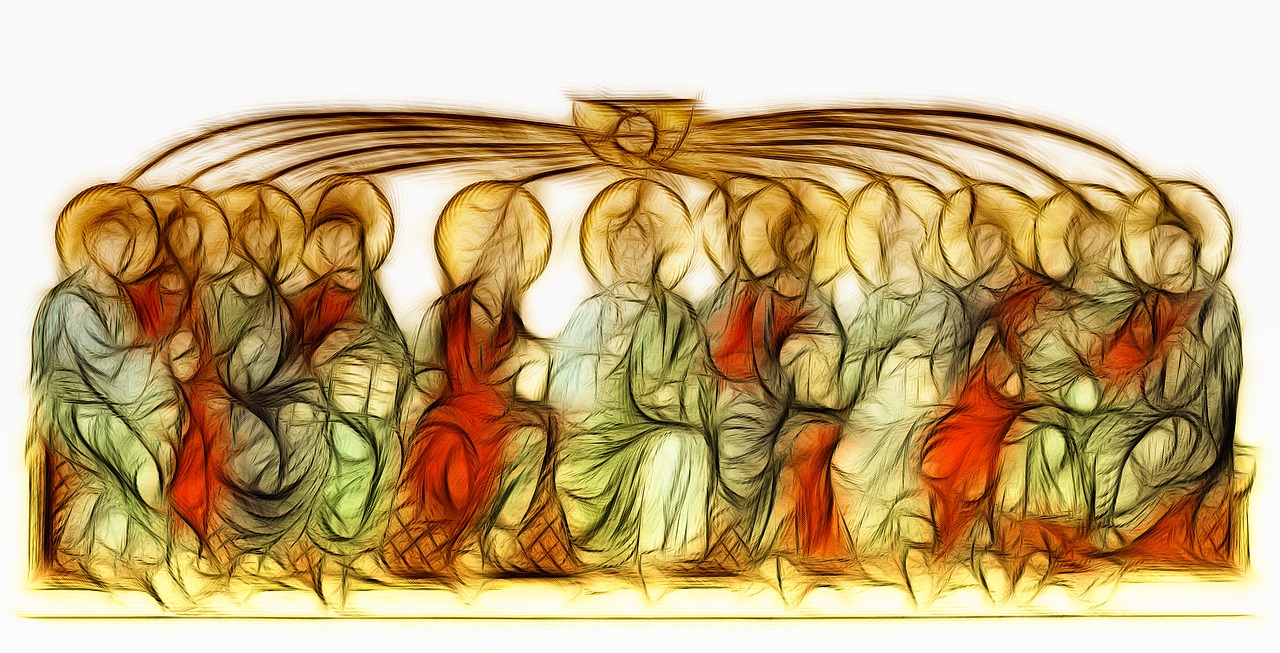
We’re primed to think of the Holy Spirit as the Third Person of the Blessed Trinity, “preceding from the Father and the Son,” who debuts at Pentecost and inaugurates the church. This last idea overlooks that the spirit of God is part of the story from the beginning. God’s spirit is a divine wind or breath blowing over the waters of chaos at Creation. This same breath brings humanity to life. As such, spirit is hardly a latecomer to the party. (Don’t be alarmed by the lower case “s”: neither Hebrew nor ancient Greek employed case distinctions.)
Spirit suggests a subtle and immaterial being, in contrast to the tangible Jesus. But the original spirit in Scripture may not be a being at all: “a principle of action, not a subject,” as scholar John McKenzie describes it. Early references to the divine spirit involve a communication that variously clothes, pours out, leaps upon, or fills up the one who receives it. The spirit can be given or removed, at God’s desire. The spirit can possess a person, as it does to judges in the Book of Judges, who are suddenly snatched up for divine service. This possession isn’t experienced in the negating way of a demon who eliminates the will of the host. Spirit enhances the recipient’s abilities, enabling the person to do feats beyond his or her skill. Such a person is charismatically charged for divine action, literally “inspired”.
Examples of the spirit at work include: the ecstasies of prophets in Saul’s time; the spirit passing from King Saul to David after his anointing; Elisha acquiring a double portion of the spirit given to his predecessor Elijah; Ezekiel’s trances; the bestowal of divine gifts like wisdom and counsel; the divine spirit released on the servant of God in Isaiah’s poems; the promise of a new heart and spirit rejuvenating Israel after the exile.
The Spirit shows up in the gospels as early as the Annunciation. Mary is told, “The holy Spirit will come upon you… therefore the child to be born will be called… the Son of God.” Christian writers perceive more than a communicating action here; rather, a manifestation that modern translators honor with uppercase distinction. John the Baptist foretells a baptism of Spirit. At Jesus’ baptism, the Spirit descends dovelike upon him. This Spirit drives Jesus into the desert to encounter temptation. Spirit drives the action in Luke and Acts, showing up fifty-six times as the principal actor. Jesus promises that the arrival of this Advocate ensures that we’ll not be orphans through the end of the age.
Scripture: Genesis 1:2; 2:7; Exodus 31:3; Numbers 11:17, 25; Judges 6:34; 14:6, 19; 1 Samuel 10:10; 19:20-24; 2 Kings 2:9; Psalm 51:13; Isaiah 11:2-3; 42:1; 61:1; Ezekiel 36:26-28; Mark 1:8, 12; Luke 1:35; 3:22; John 14:16-18, 26; Acts 2:1-18
Books: The Other Hand of God: The Holy Spirit as the Universal Touch and Goal, by Kilian McDonnell, O.S.B. (Liturgical Press, 2003)
The Holy Spirit: Setting the World on Fire, edited by Richard Lennan and Nancy Pineda-Madrid (Paulist Press, 2017)



